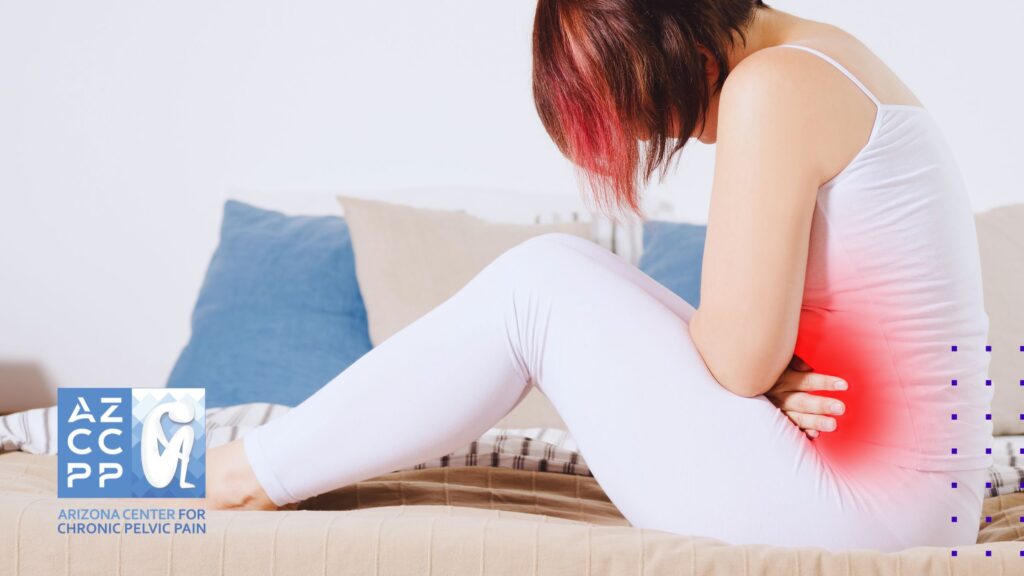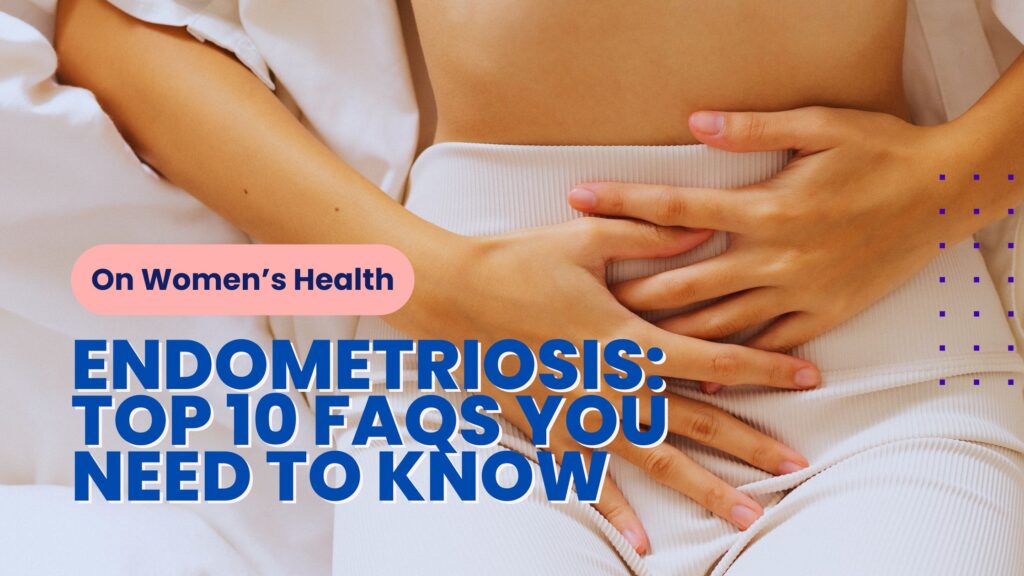Endometriosis is a pervasive but often overlooked condition affecting approximately 10% of women and girls of reproductive age worldwide, amounting to an estimated 190 million people. Despite its prevalence, it remains underdiagnosed and misunderstood, with women typically experiencing delays of 7-10 years before receiving a definitive diagnosis. For women in Arizona and beyond, endometriosis can cause a range of debilitating symptoms that impact physical, emotional, and social well-being.
This FAQ aims to provide comprehensive information on endometriosis for those seeking to better understand the condition, its symptoms, causes, treatments, and its profound impact on daily life.
FAQ 1: What is Endometriosis?

Endometriosis is a chronic condition in which tissue similar to the endometrium (the lining of the uterus) grows outside the uterus, commonly affecting the ovaries, fallopian tubes, and pelvic lining. These endometrial-like tissues respond to hormonal changes during the menstrual cycle, leading to inflammation, bleeding, and often severe pain. It can also form adhesions and cysts, which further complicate the condition. This disease impacts not only reproductive health but can also cause systemic symptoms, including fatigue and digestive issues, affecting the quality of life on multiple levels.
FAQ 2: What Causes Endometriosis?
The exact cause of endometriosis is still unknown. Some of the leading theories include:
- Retrograde Menstruation: Menstrual blood flows backward into the pelvic cavity, causing endometrial-like tissue to adhere to pelvic organs.
- Genetic Factors: A genetic predisposition may increase the likelihood of endometriosis in families.
- Hormonal and Immune System Dysregulation: Hormonal imbalances and immune system dysfunction might create an environment conducive to the growth of endometrial tissue outside the uterus.
- Embryonic Cell Transformation: Certain cells can transform into endometrial-like cells during puberty, contributing to this condition.
Each theory suggests different aspects of how the disease may develop, and a combination of these factors may play a role in the onset of endometriosis.
FAQ 3: What Are the Symptoms of Endometriosis?
Endometriosis symptoms vary, but common ones include:
- Chronic Pelvic Pain: Often severe, especially around menstruation.
- Pain During Intercourse: Many women who suffer this condition experience significant discomfort during or after sex.
- Heavy Menstrual Bleeding: Periods may be heavier or last longer than usual.

- Gastrointestinal Symptoms: These can include bloating, nausea, diarrhea, and constipation, especially during menstrual cycles.
- Fatigue and Emotional Impact: Fatigue and mental health challenges, such as anxiety and depression, are also common, resulting from the chronic pain and lifestyle disruptions.
These symptoms can mimic other conditions like irritable bowel syndrome (IBS), making diagnosis more challenging.
FAQ 4: How is Endometriosis Diagnosed?
Diagnosing endometriosis often involves multiple steps:
- Initial Assessments: A healthcare provider will usually start with a pelvic exam to check for abnormalities.
- Imaging Tests: Ultrasound and MRI scans can help detect cysts or other signs of this condition.
- Definitive Diagnosis via Laparoscopy: The only way to confirm this condition is through laparoscopy, a minimally invasive surgery where a camera is used to examine the pelvic organs and collect tissue samples.
Because symptoms overlap with other conditions, diagnostic delays are common, which can be frustrating and emotionally taxing.
FAQ 5: Can Endometriosis Cause Infertility?
Yes, endometriosis is one of the leading causes of infertility. Endometrial-like tissue can obstruct or damage reproductive structures, interfering with ovulation and implantation. However, not every woman with it is infertile. Many women are able to conceive with treatment, and assisted reproductive technologies, like IVF, offer additional options for those struggling to conceive naturally.
FAQ 6: What Treatments Are Available for Endometriosis?
Treatment for endometriosis is individualized and may include:
- Medication for Pain Management: Over-the-counter pain relievers, like NSAIDs, can help, though stronger prescriptions may be necessary.
- Hormonal Therapy: Hormonal contraceptives, GnRH agonists, and progestin therapy can manage symptoms by altering hormone levels.

- Surgical Intervention: For severe cases, laparoscopic surgery can remove endometrial implants and adhesions, providing significant symptom relief.
- Lifestyle Adjustments and Supportive Therapies: Regular exercise, dietary adjustments, and complementary therapies like acupuncture and pelvic floor therapy may also support symptom relief.
FAQ 7: Can Endometriosis Be Cured?
Currently, there is no cure for endometriosis. While treatments can help manage symptoms and improve quality of life, this can recur even after surgery. Because of its chronic nature, many women require ongoing management through lifestyle changes, medication, or repeat surgical procedures.
FAQ 8: What Are the Complications of Endometriosis?
Endometriosis can lead to a range of complications:
- Chronic Pain: Persistent pelvic pain that can become a major aspect of daily life.
- Infertility: Scarring, adhesions, and inflammation can hinder conception.
- Endometriomas and Adhesions: Cysts called endometriomas may form, and scar tissue can cause organs to stick together.
- Higher Risk of Certain Cancers: Although rare, there is an increased risk of ovarian cancer in women.
Additionally, chronic pain and infertility can contribute to mental health challenges, highlighting the need for holistic care.
FAQ 9: How Does Endometriosis Impact Daily Life?
Living with endometriosis can significantly disrupt daily activities:
- Physical Impact: Chronic pain and fatigue can make working, exercising, and socializing challenging.
- Mental and Emotional Strain: Constant pain and the uncertainty of the disease can lead to anxiety and depression.
- Financial Burden: Frequent doctor visits, medications, and, in some cases, missed workdays can lead to financial strain.

Support networks, counseling, and open communication with loved ones are essential for navigating the daily impact of this condition women face.
FAQ 10: What Can I Do to Manage Endometriosis?
Endometriosis management involves a comprehensive approach:
- Work with Healthcare Providers: Collaborate with specialists to develop a personalized treatment plan.
- Adopt Lifestyle Changes: Regular exercise, anti-inflammatory diets, and good sleep hygiene can improve well-being.
- Alternative Therapies: Acupuncture, yoga, and meditation can help reduce pain and improve emotional resilience.
- Education and Advocacy: Empower yourself by learning about this condition for women and advocating for yourself in healthcare settings.
It’s crucial to stay proactive and informed as new research and treatments continue to emerge.
Conclusion
Endometriosis is a complex condition requiring careful management and support. Although it has no cure, various treatments can help women live fulfilling lives. Increased awareness, research, and a compassionate approach can improve the quality of life for those affected. For personalized guidance, the Arizona Center for Chronic Pelvic Pain offers specialized evaluation and management for endometriosis. Contact us at (480) 599-9682 or [email protected] to schedule a consultation and take the first step towards relief and understanding.
READ MORE: Comprehensive Guide of Symptoms & Treatments for Vulvodynia
Contact Us for Endometriosis Treatment for Women

If you’re experiencing symptoms of Endometriosis, don’t delay seeking medical attention. Contact the AZCPP for expert diagnosis and personalized treatment. Our experienced team specializes in managing pelvic pain conditions and can provide the care you need to feel better. Call us at (480) 599-9682 or email [email protected] to schedule an appointment.
AZCCPP offers comprehensive evaluation, personalized treatment plans, and compassionate care to help you find relief. Contact us today at (480) 599-9682 or [email protected] to schedule an appointment. You may also check out AZCCPP on YouTube for more questions that need answers with Dr. Michael Hibner.
By understanding the symptoms, causes, diagnosis, and treatment options, you can take proactive steps to manage this condition effectively and regain your quality of life.

